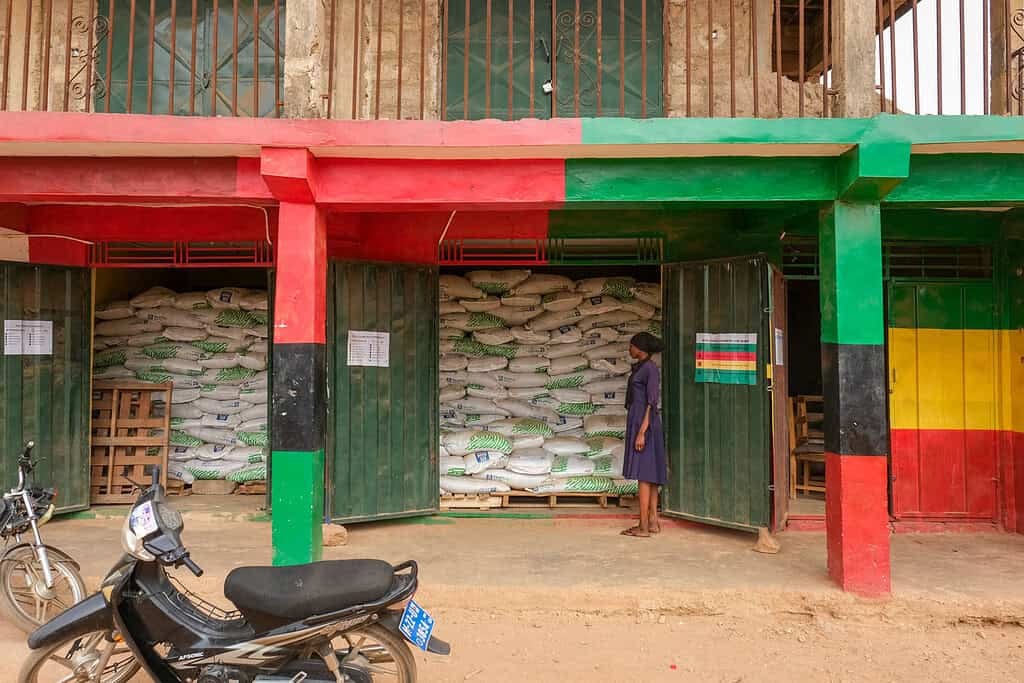🌯Inclusive FinTech Knowledge Bites [Week #68]
How informal jobs fuel Africa’s youth economy, Brazil tests data dividends as next-gen UBI, and PalmPay’s offline-first agent network succeeds in raising +$100M
Hey,
I’m Hugo Pacheco, and this is The Barefoot Economist —a newsletter where, every week, I break down three essential stories on last-mile technology, emerging market innovation, and financial inclusion. Consider it your bite-sized takeaway to stay informed, sharp, insightful, and easy to digest.
This week on The Barefoot Economist:
🛠️ How Informal Jobs Are Power Africa’s Youth Economy
💸 New-gen UBI: Brazil’s Bold Data Divident Experiment
🧬 Offline by Design: PalmPay’s Agent Blueprint
Enjoy your reading!
🛠️ Scaling the Street: How Informal Jobs Are Powering Africa’s Youth Economy

Each year, over 10 million young Africans enter the labor force, and formal economies only have room for a third. The rest? They're not sitting idle—they're hustling. They're trading, driving, selling, stitching, healing. Often invisibly. Often unprotected. But always moving what they want isn’t just a job. It’s "work that works"—autonomy, dignity, flexibility, and the ability to build something that lasts.
Informality isn’t the problem. It’s the default. And in a continent as young and underemployed as Africa, it might also be the solution—if we take it seriously.Informal work isn’t going anywhere. So let’s stop pretending it should—and instead design around it. Not for survival. For scale.
🔑 Key Takeaways
The Informal Economy Is the Real Economy93% of Nigerian workers operate informally. That’s not a gap. That’s the market.
Informality is not a deviation. It’s the dominant operating system for youth livelihoods. Trying to fix youth unemployment without embracing this is like trying to roll out broadband to people without electricity.
Youth Are Making Rational ChoicesFormal jobs are few, rigid, and out of reach. Informal work offers agency, liquidity, and control.
Young people aren’t passive victims. They’re active agents. They are choosing work that aligns with their lived realities. Daily income matters more than monthly prestige. Especially for young women juggling caregiving, cultural expectations, and exclusion.
Security is the Missing Layer not FormalizationThe problem isn’t informal work. It’s that it’s precarious by design.
Security—income smoothing, health cover, micro-pensions—can be built within informal systems. Just ask Awabah or Turaco. Embedding protection at the platform or network level works. We don’t need to wait for top-down policy. We can design resilience from the bottom up.
Productivity Unlocks Pathways Out of PovertyInformality doesn’t mean low ambition. But without tools, it’s a trap.
Youth aren’t just working—they’re layering income, building dreams. But without access to capital, steady markets, or digital tools, their grind stays stuck at survival. Companies like Moniepoint and Pricepally prove that when you boost productivity, you unlock mobility—and dignity.
We Need Ladders and NetsLadders = Tools for growth. Nets = Buffers against shocks
One without the other? Still a fall.
What works is ecosystems that balance risk and reward. The next wave of interventions must stop asking "How do we formalize these workers?" and start asking "How do we fund, insure, and grow what’s already working?"
🌯 The Barefoot Insight
Strategic Implications for Financial Inclusion & Agent Networks
Reframe KYC/KYA to Suit InformalityMany informal agents already operate viable businesses (retailers, drivers, traders). Use adaptive Know Your Agent (KYA) models that recognise alternative credentials: airtime sales, transaction history, and community standing.
Design Tools for Portfolio LivelihoodsOffer multi-purpose financial products (e.g. micro-loans, inventory finance, savings and insurance), reflecting how youth stack income sources. Daily liquidity tools can be more valuable than fixed-term loans.
Embed Social Protection into Last-Mile PlatformsUse DFS and agent platforms to distribute micro-pensions, insurance, and emergency credit—directly where people already earn/spend. Collaborate with innovators like Turaco or Awabah to bundle these into agent-led models.
Support Female Participation Through Systemic DesignPrioritise women-friendly agent onboarding and caregiving-aware product design, and ensure agents can access tools to smooth income gaps due to family or health events.
Formalization Should Be Optional, Not a PrerequisiteEnable "productive informality": legitimising without forcing rigid compliance. Example: community verification for agent eligibility, or using telco SIM registration data as a proxy for ID.




